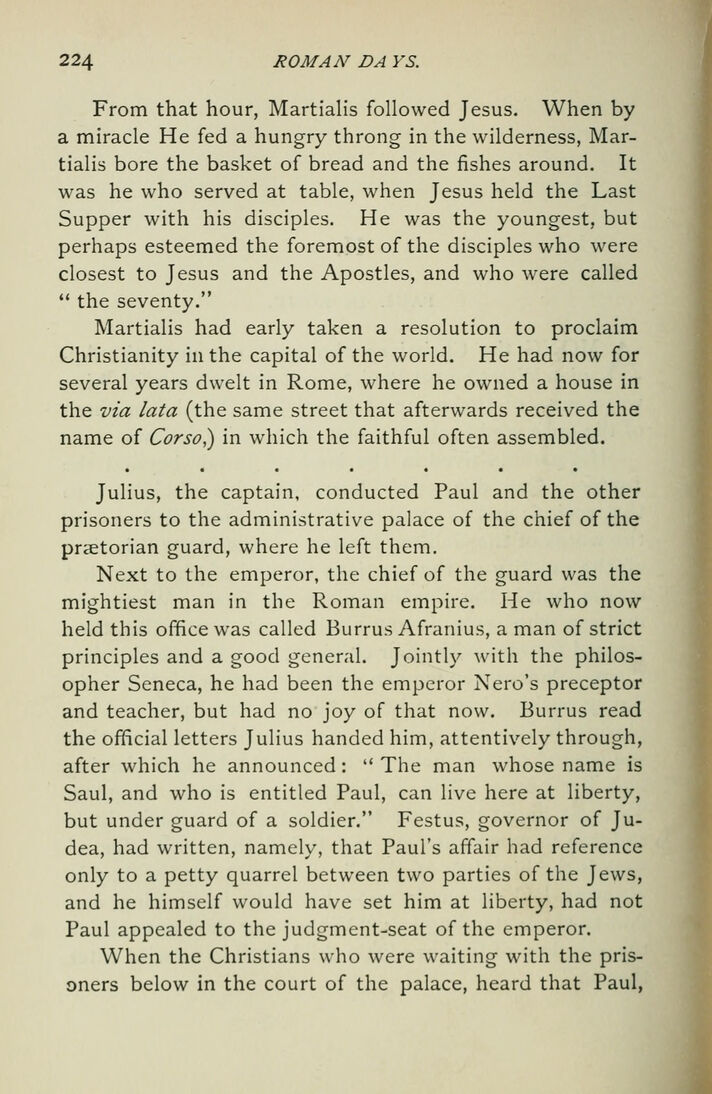
Full resolution (JPEG) - On this page / på denna sida - Roman Traditions of Peter and Paul - 2. Paul in Rome

<< prev. page << föreg. sida << >> nästa sida >> next page >>
Below is the raw OCR text
from the above scanned image.
Do you see an error? Proofread the page now!
Här nedan syns maskintolkade texten från faksimilbilden ovan.
Ser du något fel? Korrekturläs sidan nu!
This page has never been proofread. / Denna sida har aldrig korrekturlästs.
224 ROMAN DA YS.
From that hour, Martialis followed Jesus. When by
a miracle He fed a hungry throng in the wilderness, Mar-
tialis bore the basket of bread and the fishes around. It
was he who served at table, when Jesus held the Last
Supper with his disciples. He was the youngest, but
perhaps esteemed the foremost of the disciples who were
closest to Jesus and the Apostles, and who were called
" the seventy."
Martialis had early taken a resolution to proclaim
Christianity in the capital of the world. He had now for
several years dwelt in Rome, where he owned a house in
the via lata (the same street that afterwards received the
name of Corso,) in which the faithful often assembled.
Julius, the captain, conducted Paul and the other
prisoners to the administrative palace of the chief of the
praetorian guard, where he left them.
Next to the emperor, the chief of the guard was the
mightiest man in the Roman empire. He who now
held this office was called Burrus Afranius, a man of strict
principles and a good general. Jointly with the philos-
opher Seneca, he had been the emperor Nero’s preceptor
and teacher, but had no joy of that now. Burrus read
the official letters Julius handed him, attentively through,
after which he announced :
" The man whose name is
Saul, and who is entitled Paul, can live here at liberty,
but under guard of a soldier." Festus, governor of Ju-
dea, had written, namely, that Paul’s affair had reference
only to a petty quarrel between two parties of the Jews,
and he himself would have set him at liberty, had not
Paul appealed to the judgment-seat of the emperor.
When the Christians who were waiting with the pris-
oners below in the court of the palace, heard that Paul,
<< prev. page << föreg. sida << >> nästa sida >> next page >>